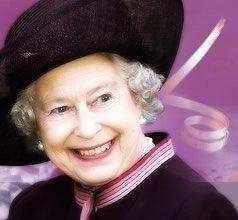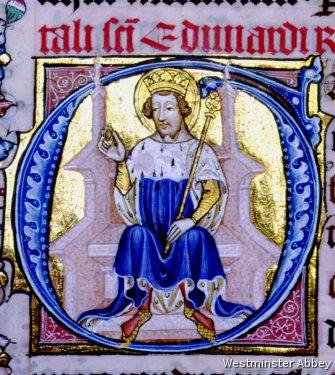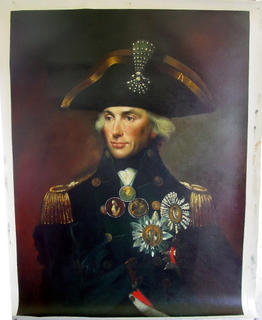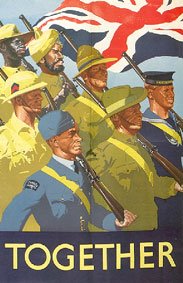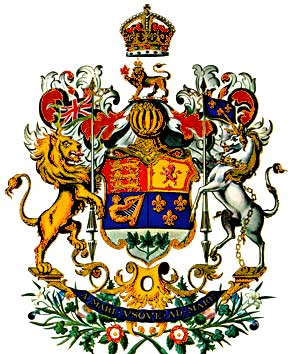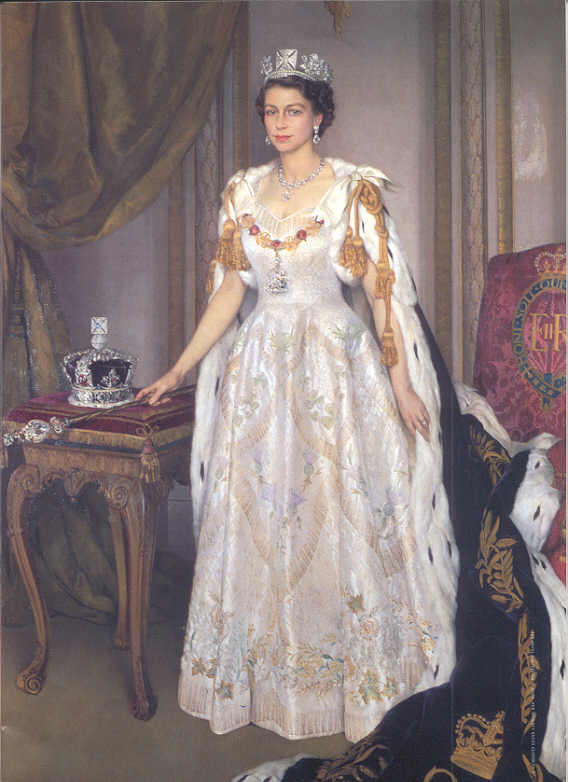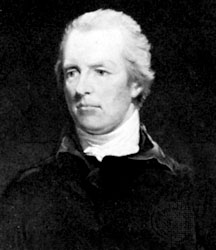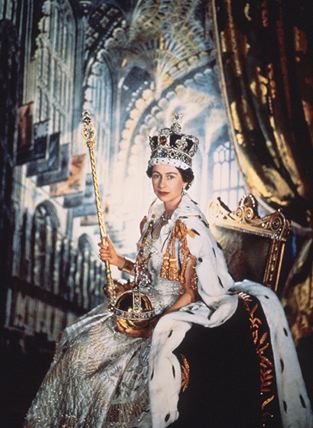[+] HONOURING OUR PATRON, SIR WINSTON CHURCHILL, VICTOR OF THE ENGLISH-SPEAKING PEOPLES
[+] HONOURING OUR QUEEN, ELIZABETH THE SECOND, ON THE 80TH YEAR OF HER BIRTH (1926 - 2006)
[+] HONOURING OUR KING, SAINT EDWARD THE CONFESSOR, ON THE 1000TH YEAR OF HIS BIRTH (1005 - 2005)
[+] HONOURING OUR HERO, LORD NELSON, ON THE BICENTENNIAL OF THE BATTLE OF TRAFALGAR (1805 - 2005)
[+] HONOURING OUR SONS, THE QUEEN'S COMMONWEALTH SOLDIERS KILLED IN THE 'WAR ON TERROR'
[+] HONOURING OUR VETS ON THE 150TH ANNIVERSARY OF THE VICTORIA CROSS (1856 - 2006)
 If CANZUK (Canada-Australia-New Zealand-UK) ever became a united global entity to stem their independent relative decline internationally, and to jointly preserve their global interests vis-a-vis the rising great powers in the world, they wouldn't need to create and harmonize a new stock exchange to pool their capital - they've already got one. It's called the Alternative Investment Market (AIM), and as it turns out, the London AIM exchange is dominated by dozens and dozens of listed Canadian and Australian companies, whose combined market capitalisation equals nearly 50% of the now $50 billion value (2,200 companies, of which 270 are “foreign”) of the fast growing stock exchange. How ever is this possible, you ask?
If CANZUK (Canada-Australia-New Zealand-UK) ever became a united global entity to stem their independent relative decline internationally, and to jointly preserve their global interests vis-a-vis the rising great powers in the world, they wouldn't need to create and harmonize a new stock exchange to pool their capital - they've already got one. It's called the Alternative Investment Market (AIM), and as it turns out, the London AIM exchange is dominated by dozens and dozens of listed Canadian and Australian companies, whose combined market capitalisation equals nearly 50% of the now $50 billion value (2,200 companies, of which 270 are “foreign”) of the fast growing stock exchange. How ever is this possible, you ask?Lack of red tape, mostly. Continental Europe and the United States have become unfriendly places for listed public companies to raise capital. Since its inception in 1995, AIM has enjoyed success after success due to its low-regulatory burden, especially in relation to the Sarbanes-Oxley Act, which imposes regulatory costs on companies listed in the US, including those without any operations. Flexibility is provided by less regulation and no requirements for capitalisation or number of shares issued. The AIM as a sub-market of the London Stock Exchange, allows smaller companies to float shares with a more flexible regulatory system than is applicable to its own Main Market. Some companies have since moved on to join the Main Market, although in the last few years, significantly more companies transferred from the Main Market to AIM (AIM has significant tax advantages for investors, as well as less regulatory burden for the companies themselves). In 2005, 40 companies moved directly from the Main Market to AIM, while only 2 companies moved from AIM to the Main Market.
Canada and Australia are powerful resource economies, and as such need access to outside capital to finance their continuing strong growth. The UK is increasingly becoming the source of that investment - hence the startling growth of AIM over recent years, which shows no signs of letting up.
 If you were wondering when the seeds of liberty and the British spirit of "Peace, Order and Good Government" were pounded into our hearts and minds, here it is. June 28, 1759, was not a happy day for the inhabitants of Quebec, who were absolutely terror-stricken of General Wolfe and the British Army laying siege to the city below. Pursuing a strategy of psychological intimidation, Wolfe's Manifesto to the French colonials reads like the riot act. No mere words were these; Wolfe was clear about his aims: "If, by accident in the river, by the enemy’s resistance, by sickness or slaughter in the army, or, from any other cause, we find that Quebec is not likely to fall into our hands (persevering however to the last moment), I propose to set the town on fire with shells, to destroy the harvest, houses and cattle, both above and below, to send off as many Canadians as possible to Europe and to leave famine and desolation behind me; but we must teach these scoundrels to make war in a more gentleman like manner."
If you were wondering when the seeds of liberty and the British spirit of "Peace, Order and Good Government" were pounded into our hearts and minds, here it is. June 28, 1759, was not a happy day for the inhabitants of Quebec, who were absolutely terror-stricken of General Wolfe and the British Army laying siege to the city below. Pursuing a strategy of psychological intimidation, Wolfe's Manifesto to the French colonials reads like the riot act. No mere words were these; Wolfe was clear about his aims: "If, by accident in the river, by the enemy’s resistance, by sickness or slaughter in the army, or, from any other cause, we find that Quebec is not likely to fall into our hands (persevering however to the last moment), I propose to set the town on fire with shells, to destroy the harvest, houses and cattle, both above and below, to send off as many Canadians as possible to Europe and to leave famine and desolation behind me; but we must teach these scoundrels to make war in a more gentleman like manner."To the Citizens of Quebec:
The formidable sea and land armament, which the people of Canada now behold in the heart of their country, is intended by the king, my master, to check the insolence of France, to revenge the insults offered to the British colonies, and totally to deprive the French of their most valuable settlement in North America. For these purposes is the formidable army under my command intended. The King of Great Britain wages no war with the industrious peasant, the sacred orders of religion, or the defenceless women and children: to these, in their distressful circumstances, his royal clemency offers protection. The people may remain unmolested on their lands, inhabit their houses and enjoy their religion in security; for these inestimable blessings, I expect the Canadians will take no part in the great contest between the two crowns. But, if by a vain obstinacy and misguided valour, they presume to appear in arms, they must expect the most fatal consequences; their habitations destroyed, their sacred temples exposed to an exasperated soldiery, their harvest utterly ruined and the only passage for relief stopped up by a most formidable fleet. In this unhappy situation, and closely attacked by another great army, what can the wretched natives expect from opposition? The unparalleled barbarities exerted by the French against our settlements in America might justify the bitterest revenge in the army under my command. But Britons breathe higher sentiments of humanity, and listen to the merciful dictates of the Christian religion….In this great dilemma, let the wisdom of the people of Canada shew itself; Britain stretches out a powerful yet merciful hand, faithful to her engagements, and ready to secure her in her most valuable rights and possessions: France, unable to support Canada, deserts her cause at this important crisis, and, during the whole war, has assisted her with troops who have been maintained only by making the natives feel all the weight of grievous and lawless oppression....
J.A. WOLFE.
Is this some kind of joke? Clement Attlee besting Winston Churchill as the greatest British Prime Minister of the 20th century? Attlee nationalized a fifth of the British economy between 1945 and 1951; Churchill only saved Britons from fascist tyranny, and led the free world to victory against the Nazi menace. Sure Attlee was successful in implementing his program, but Thatcher was successful at de-implementing it. I might be able to stomach Margaret Thatcher – no, I cannot even see the Iron Lady beating Churchill, and I can’t see Thatcher being the equal of someone whose legacy she completely overturned. So what gives?
As it turns out, the survey was completed by a socialist, and therein lies the answer to why the media is probably running with it. Francis Beckett is an historian and a lifetime member of the Labour Party, a former trade union press officer and a regular writer with the Guardian. But the little trickster is no dumby and knows how to buy a little credibility. He has effectively shielded himself from predictable attacks from the right by also topping Thatcher, said neutralized right purchased on the backs of the apoplectic left, who are upset that Thatcher won too. But the real outrage is that Attlee beat Churchill, though most media sources are spinning it differently.

Graded Out of Five Points:
5: Clement Attlee
5: Margaret Thatcher
4: Edward Heath
4: Winston Churchill
4: Harold Macmillan
4: Sir Henry Campbell-Bannerman
3: Robert Arthur Talbot Gascoyne-Cecil (Lord Salisbury)
3: Herbert Henry Asquith
3: David Lloyd George
3: Stanley Baldwin
3: James Harold Wilson
3: Tony Blair
2: James Callaghan
2: Arthur James Balfour
1: Andrew Bonar Law
1: James Ramsay MacDonald
1: Sir Alec Douglas-Home
1: John Major
0: Robert Anthony Eden
0: Neville Chamberlain
Okay, here’s how it really is. Nobody comes close to the greatest statesman of the 20th century. Nobody. Much as you would rate American military power against its nearest competitors, on the first rung you have Churchill; the second is an empty field. On the third rung you have Thatcher, Lloyd George, Asquith… followed by the also-rans. The idea that a prime minister is successful just because he can implement his agenda ignores the crucial point that some agendas might do insidious long-term harm to the country. Is Stalin the greatest Russian leader because he was able to implement his program?
We must be careful to draw the line between most consequential leaders in history, and those surveys where we might rate the “greatest”. You could grade Attlee as being perhaps the most consequential prime minister of the 20th century (though even here, Churchill probably has him), since his policies had major (negative) consequences for the long-term economic health and welfare of Britain, but you would have to rate him on a par with the failures on a whose-who greatest list.
The greats are the ones who lead a reluctant people out of historical catastrophe and succeed (Churchill, Thatcher, Lloyd George). The failures are the ones who try but fail (Eden, Blair); who don’t try and fail (Major); who try wrongly and fail (Baldwin); who try wrongly and succeed (Chamberlain, Attlee). The most dangerous ones are the latter types, those who blindly lead the people into a historical catastrophe and succeed or partially succeed.
What this essentially shows is that there is no substitute for doing the right thing and succeeding. From Eden on down to Chamberlain, all were either failures or spectacular failures, and while we can sympathize with their historical circumstances, none of them are qualified to rank in that most exclusive of clubs.
Unfortunately, Francis Beckett doesn’t seem to understand this most elementary of points. And because of it, the media is having a field day polluting young minds with the greatness of Attlee. Clement Attlee was not a great prime minister. As Churchill said, he was "a modest man with much to be modest about".
UPDATE: The Gods of the Copybook Headings take a better swipe at Attlee than me. They also noticed something that escaped me - the deliberate expunging from history of Lord Salisbury, Britain's first PM of the 20th century, which is a favourite pastime of all socialists negatively obsessed with titles.
 51-year-old Robert Brown from
51-year-old Robert Brown from Brown has approached the High Court in
In a summons, he cites the Queen, the Attorney General and the executors of the wills of the Queen Mother and Princess Margaret as defendants.
Brown has also tried, unsuccessfully, to get information from the Department for Constitutional Affairs as well as the Prime Minister's and Cabinet Office.
Brown insists there is a public interest issue on the grounds of openness and consistency and says he would not object to the wills being made public, if they had once been made private to protect an illegitimate child.
Brown says he has been trying for four years to prove his parentage.
"I am not going to give up. I'm driven by a host of memories and a fundamental need to know.
"I have some evidence, including a photograph taken in October 1956 of a child sitting in a car in
Brown says there is some mystery surrounding his birth, with a Times announcement giving the date as
His parents are registered as Cynthia and Douglas Brown and Mr Brown claims Cynthia Brown had been a model working for Hardy Amies, who was a favoured designer of the princess.
He says years of research has led him to firmly believe the princess was forced to give up her "secret" son, but did visit him when he was young.
He claims there are other things to back up his claim, including a mystery Privy Council meeting on the day he was born.
He claims there were rumours of an illegitimate child in High Court circles with the closed wills of both the Queen Mother and Princess Margaret.
"The point is they've never, ever admitted or denied it", he said.
"This court summons is one avenue of many which is achievable, clean and clear cut, but win or lose, I won't give up."
It is unknown when the case will go before the High Court.
Brown claims the case raises the major constitutional issue of the rights of illegitimate children in the line of succession.
An illegitimate child cannot inherit the throne. The succession is governed by the Act of Settlement and the Royal Marriage Act, both of which are rather specific about who gets to be a dynast to the British throne.
Additionally, the media as a point of fact; should check and see what Princess Margaret was undertaking between December 1954 - June 1955; quite a lot in fact; including a tour of Caribbean, in February 1955. The Court Circular reports frequent public appointments for the Princess at this time. There are also various articles and photos of Princess Margaret for this time period, looking rather slim.
I meant to mention this in my post below, but there are a number of Iron Lady bloggers that I would be inclined to recognize when I do finally get around to honouring our women of steel. From my perspective these would include blogging notables such as Kathy Shaidle at Relapsed Catholic, Kate McMillan over at Small Dead Animals, and probably many more should you be favourably disposed to provide me with a name and a link.
And I suppose I'd be remiss if I didn't mention celebrity bloggers such as Michelle Malkin and Anne Coulter, though as brazen self-promoters they probably lack the thrift of character that would qualify them in the Thatcher department. Better to be vigorous, strong willed and intellectually consistent in a way that doesn't come across as being overly cute, biting or artificially opinionated. It would be fair to say that I despise Anne Coulter in almost equal measure. Just give me the unvarnished truth, I say. And kindly spare me the shock.
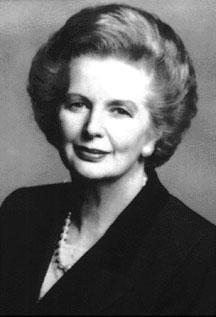 Margaret Thatcher isn’t the only “Iron Lady” around today, only the most synonymously celebrated one.
Margaret Thatcher isn’t the only “Iron Lady” around today, only the most synonymously celebrated one.A less celebrated but more popular Iron Lady would have be Her Majesty the Queen, if inner steel, steadfastness and a stiff upper lip have anything to do with it. The late Queen Mother too had this in spades, said attributes most famously on display in the walkarounds of East London during the Blitz, showing a level of spine that worried Hitler into pronouncing her “the most dangerous woman in Europe”. Empress Victoria exhibited a strength of longevity unmatched by any of her predecessors and followers. Elizabeth I stood up to the Spanish Armada. History, in actual fact, is replete with Iron Majesties.
But quiet resolve and tenacity aren’t usually enough when we talk of “strong willed” women. It isn’t intemperate enough or uncontroversial enough for the modern media to report, so such strength of character typically goes unnoticed. The media prefers the “Red queen” to the real Queen, referring to the fiery Baroness Barbara Castle, who was famous for her fiercely held all-red left-wing views as leader of the Labour Party, who dominated British politics for 50 years as an uncompromising campaigner for women’s rights, who single-handedly became the first woman Labour MP in 1945 and later the first woman Minister.
Uncompromisers don’t normally become prime minister though, and all the will in the world won’t help a Labour leader who (ironically) clashes with trade unions. Before she passed away in 2002 at the age of 91, her attacks right up until the end on the ideological drift of “New Labour” led Chancellor Gordon Brown to call her “my mentor and tormentor”. Today it is not widely known that it was Baroness Castle who was first labeled Britain's Iron Lady, almost 30 years before the Tories got their own Iron Lady in Margaret Thatcher. Lady Castle is proof of the obvious: that Iron Ladies don’t have to be right-wing to be strong willed.
It helps to be right though. Barbara Castle may have willed the woman’s “Equal Pay for Equal Work” Act into legislative reality in the 1960s, but all the stubbornness in the world couldn’t make people observe it. Like all socialist dogma, it was unworkable, and was soon relegated to the trash heap of history. The downside to iron-ladyness is that you are despised by as many as you are liked, none are indifferent. So if you are going to be despised by half the population, if you are going to quickly burn your political capital as a polarizing figure, you better do it on something changeworthy for the betterment of generations. It’s okay to be despised - that’s leadership. It’s not okay to be dismissed or not respected. Few dismiss Thatcher and few still do not respect her.
Other ironclad ladies: Leaders who have earned the unofficial title (some of them postfactum) include: (Source: Wikipedia)
- Indira Gandhi, the Prime Minister of India from 1966 to 1977 and 1980 to 1984
- Golda Meir, the Prime Minister of Israel from 1969 to 1974
- Baroness Barbara Castle, a British left-wing politician (1910-2002).[1]
- Margaret Thatcher, the Prime Minister of the United Kingdom from 1979 to 1990
- Angela Merkel, the Chancellor of Germany since 2005
- Ellen Johnson-Sirleaf, the President of Liberia since 2006
- Wilhelmina, Queen of the Netherlands from 1890 to 1948
- Biljana Plavšić, served in the Bosnian Serb government from 1992 to 1998.
- The Iron Butterfly is a nickname of former Philippine first lady Imelda Marcos.
- Iron Rita is a nickname of Dutch minister Rita Verdonk
 His Excellency The Honourable Anand Satyanand, PCNZM is the 19th Governor-General and personal representative of New Zealand’s Head of State, Her Majesty Queen Elizabeth II
His Excellency The Honourable Anand Satyanand, PCNZM is the 19th Governor-General and personal representative of New Zealand’s Head of State, Her Majesty Queen Elizabeth IIIn March the Queen approved the appointment of Satyanand, who succeeds Dame Silvia Cartwright after a five year term.
A fanfare of trumpets and a 21 gun salute by the 16 Field Regiment from Linton marked the start of ceremonies to swear-in the new Governor General today.
Satyanand arrived at Parliament at 11.45am where he was received by a Naval led Tri-service Royal Guard of Honour comprising 100 men and women drawn from the three services and their respective Queen’s Colours and escorts, and the Band of the Royal New Zealand Navy and the Royal New Zealand Air Force Trumpeters were also attendance.
His investiture began with an Indian and Maori welcome, followed by the constitutional swearing in. A commission of appointment was read, and the oath of allegiance and the oath of office taken.
The appointment is then proclaimed, at which point Satyanand became the 19th Governor-General of New Zealand.
Following the ceremony the new Governor General laid a wreath; at the National War Memorial in honour of New Zealand's war dead; a tradition that all new Governor General undertake on the day of their swearing in.
A 24 person Guard of Honour, Catafalque Guard, bugler and drummer from the NZDF also attended the commemorative service.
Satyanand, whose parents are Indo-Fijians, is a lawyer, judge and former ombudsman.
He says he is deeply honoured to have been asked to serve as Governor General and says there will be a great deal of pride within the Indian community about his appointment.
Prime Minister Helen Clark says Satyanand will bring much strength to his new role including a broad knowledge of the workings of government and the law.
"Throughout his working life judge Satyanand has made a substantial contribution to legal reform and legal education…he has been active in a range of community, cultural and sporting groups, and maintains an abiding interest in international affairs and New Zealand's relationships with other countries."
After the ceremony the vice regal party moved into Parliament House where presentations were made in the Grand Hall; followed by a reception in the Banquet Hall.
New Zealand First leader and Foreign Minister Winston Peters say his party fully supports the appointment
"He is the right person to carry out the diverse role of the Queen's representative in 21st century New Zealand.
The media have used this time to promote their view of a Republic; however when asked by the media in April his view of New Zealand becoming a republic, Satyanand had this to say:
I am an admirer of our country's present constitutional arrangements and the mechanisms which enable a straightforward change of government and our connection with our historical past.
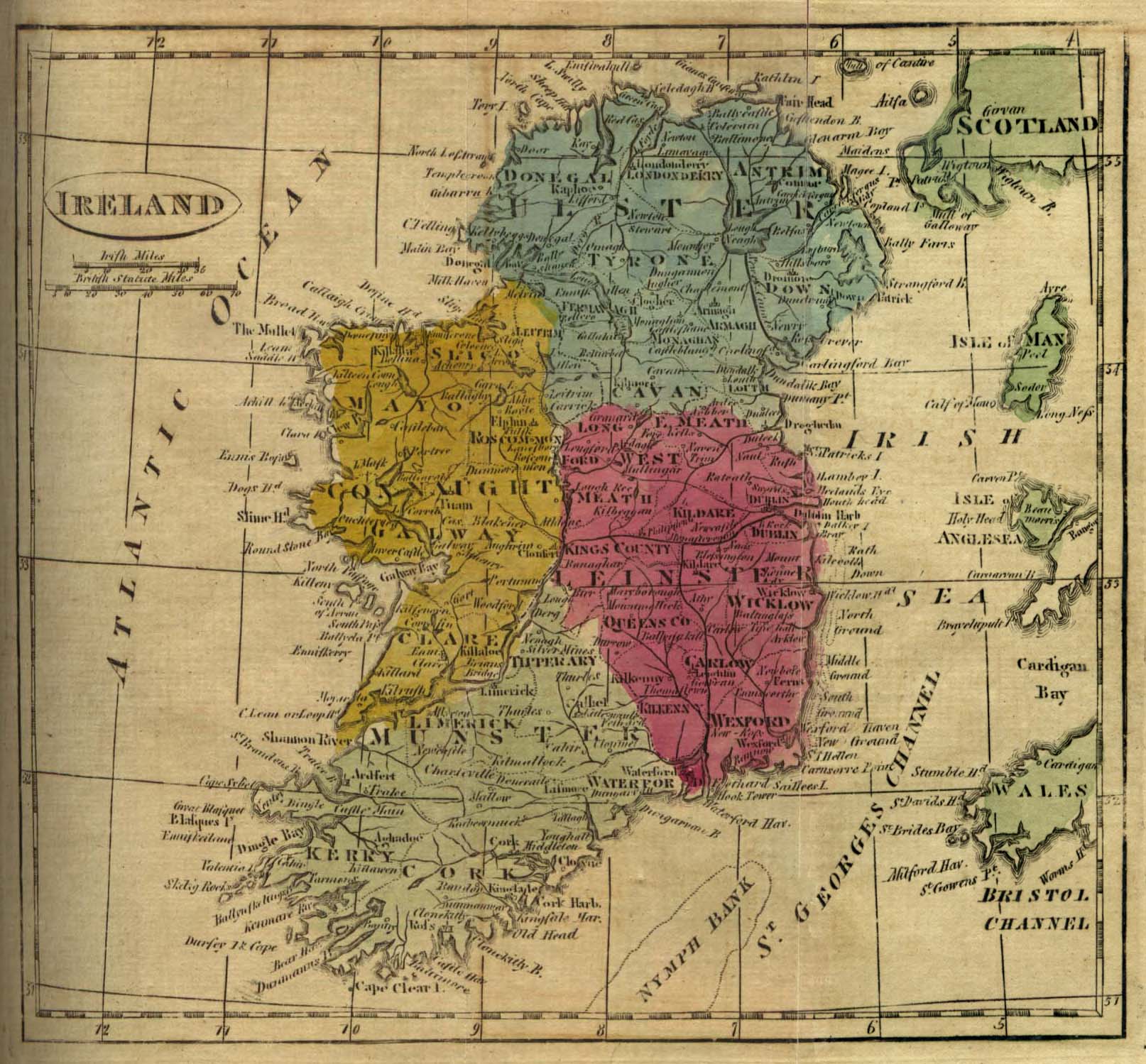 A member of the Irish Parliament, Gay Mitchell, suggested that there could be a role for the British Monarchy if it meant the re-unification of Ireland north and south. Not only did he suggest it, when asked to clarify under political pressure from Irish Republicans, he defended the position:
A member of the Irish Parliament, Gay Mitchell, suggested that there could be a role for the British Monarchy if it meant the re-unification of Ireland north and south. Not only did he suggest it, when asked to clarify under political pressure from Irish Republicans, he defended the position:"Are we prepared to actually think out of the box and say, well how - if this is to come about - it will be accommodated, or alternatively, are we saying that we are abdicating solely to Provisional Sinn Fein, the role of being advocates for a united Ireland in the Republic?
I think that would be a disastrous thing to do."
This is actually an intriguing idea, and probably necessary to bring together southern Republicans and northern Unionists under a single constitutionally united nation. It would probably not be enough: Ireland would also have to rejoin the Commonwealth and convince Unionists of the extremely close relationship with Britain.
But it goes to prove, I think, of the continued importance and relevance the Monarchy plays in the unity of people when it is still offered as a viable political solution after decades and centuries of entrenched hate. It goes without saying that I personally support any political action that would permanently and peacefully bring together the people of Ulster, Munster, Leinster and Connaught, when the only harm that can come of such action is the strengthening of our shared unity under Crown, Country and Commonwealth.
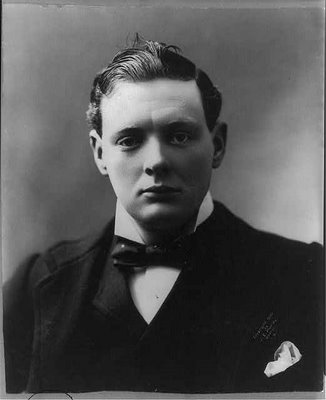 ADDENDUM TO BRITAIN'S "SPECIAL RELATIONSHIP"
ADDENDUM TO BRITAIN'S "SPECIAL RELATIONSHIP"The great lesson is the Churchillian one of "greater" Anglo-Saxon unity in the name of sanity, decency and the future against insanity, indecency and destruction. The question of whether our epicentre ought to be Washington, London or elsewhere is grotesquely pointless and misplaced.
There inevitably and perpetually will be differences of flavour, currency and fashion among the members of our greatest and most important of Clubs. Let us never forget, however, the ties of blood, spirit and conviction that not only bind us but which animate our indomitable spirit of freedom and of its vigorous defence. Our great common legacy is that of Washington and Pitt; Lincoln and Palmerston, Disraeli, Lee and Grant; Wilson and Lloyd George, Borden, Smuts and Hughes; of Roosevelt, Churchill, Mackenzie King and Curtin; of Kennedy, De Gaulle, Brandt and Meir (stretching the definition of "anglo-saxon" here); of Reagan, Thatcher, Mitterand and Kohl (stretching the definition again); of Bush, Blair, Harper and Howard.
The legacy we all share is our willingness to call both evil and truth by their names, and to do likewise with a lie - and to stand in defence of truth and of freedom, and be ready to destroy evil and lies, whatever the cost - for the simple truth that we understand that we cannot live in a world in which evil, lies, slavery and our enemies flourish.
Against our commonalities, our differences are as trivial as they come.
COMMENT by Walsingham
GRAHAM FRASER, TORONTO STAR: PM shucks Reform roots for a royal connection - With his recent unapologetic embrace of the British monarchy, what was Harper trying to signal, and to whom?
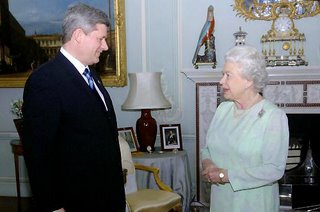 Prime Minister Stephen Harper is showing signs of a Tory blue streak — as opposed to his Reform roots — in the most traditional way: by showing respect for the Crown.
Prime Minister Stephen Harper is showing signs of a Tory blue streak — as opposed to his Reform roots — in the most traditional way: by showing respect for the Crown.When he was in London last month, and spoke to the Canada-U.K. Chamber of Commerce, he gave one of the most monarchist speeches a Canadian prime minister has given since John Diefenbaker.
Quoting Winston Churchill from a 1929 tour of what Churchill called "the Great Dominion," Harper cited as the heart of the Canada-U.K. relationship "the golden circle of the Crown, which links us all together with the majestic past that takes us back to the Tudors, the Plantagenets, the Magna Carta, habeas corpus, petition of rights, and English common law."
It's hard to imagine a Liberal prime minister over the last 40 years giving such a speech — or, for that matter, a leader of the Reform Party or the Canadian Alliance, who were more likely to give major addresses to right-wing think-tanks in Washington, like the Heritage Foundation.
"If you're a real Tory, you have a sense of reverence for the monarchy," observed University of Windsor political scientist Heather MacIvor. "There is an element of magic to it."
Read the whole thing here.
 There’s a lot of talk about whether or not we are in the middle of World War III. That’s what Newt Gingrich calls the worldwide “War on Terror”, as do others. Going one step further, Norman Podhoretz mimics James Woolsey's lead by referring to it as World War IV, and agrees with the Project for the New American Century that the Cold War was effectively the real number III. This would be taking a broader view of things alright, but I still think they both come up short on the big picture, and remain stuck in a present day, non-historical perspective.
There’s a lot of talk about whether or not we are in the middle of World War III. That’s what Newt Gingrich calls the worldwide “War on Terror”, as do others. Going one step further, Norman Podhoretz mimics James Woolsey's lead by referring to it as World War IV, and agrees with the Project for the New American Century that the Cold War was effectively the real number III. This would be taking a broader view of things alright, but I still think they both come up short on the big picture, and remain stuck in a present day, non-historical perspective.Step back a little bit. Fast forward yourself to the end of your days, to your 100th birthday, to a later period in this century. And then cast your eye beyond that to the next, to an era of permanent tranquility. Now stop and look back. The wars of the 20th century appear smaller, don't they. From the Guns of August to 9/11, from militant Germany to militant Islam, the conflicts of that era become conjoined as essentially one continuous struggle for freedom against the forces of totalitarianism and murderous insanity.
Since the collapse of Europe and the Old World Order in 1914, Wilsonian America and the New World have been trying to permanently establish a new universal order based on modern principles of freedom, democracy, equality and the rule of law. That endpoint in time was captured by Francis Fukuyama in 1989 as the “End of History”, which prematurely proclaimed victory for American led liberalism around the world. Obviously the current combating of Islamic terrorism emanating from backward conclaves and failed, oppressive states means we are not there yet, and may in fact still be a long way off.
Which returns me to the grand thesis. We are currently engaged in an epic conflict that later historians may plausibly call the Second Hundred Years’ War, much as historians now view the 116 year clash between England and France in the 14th century as the first Hundred Year's War (1337-1453). That fight too was marked by several lengthy wars, brief battles and long moments of reprieve, but in the long outlines of that struggle there reflected discernible commonalities, which had a major evolutionary and societal impact.
It too was a seismic shift in world order in fact, from feudalism to nationalism, from knight to mercenary, from peasant to soldier, from vassal to standing armies. The conflict that began as a war between English and French kings became a war between the English and French people. Its conclusion meant that peasants formerly enslaved to their masters could now fight for king and country, and be rewarded for their courage, an effect that had a revolutionary impact on the organization of medieval societies. The decline of chivalry marked the beginning of liberty, but also had a debilitating influence on the romantic - though no less real - notions of reverence, honour and loyalty.
The social consequences of the Second Hundred Years’ War is proving equally transformative. The evolution from powerful monarchies to representative democracy, from religious devotion to fanatical secularism, made their first impression on our elites before filtering down into the masses. The discrete gentleman aristocrat has been replaced by the glib attention seeking celebrity as society's new role model. The loyal patriot gets increasingly displaced by the non-aligned cosmopolitan multiculturalist. The effect of urbanization and globalization progressively weakens devotion to country; the secularization of society places no natural constraints on the excesses of the undesirable. Artificial, top-down state constructs of "tolerance" and "political correctness" now take the place of older faith-based and God-fearing edicts. And on and on it goes. The continuing social revolution has been immense over the past 90 years, most of it unimpressive.
The decline of virtue and decency is amply illustrated by the changing nature of the enemy on the battlefield. At the Battle of Crecy in 1346, the English actually apologized to the French for their unchivalrous behaviour, after peasant bowmen cut down a third of France's knights in a single engagement. English peasants were ordered to conduct mercy killings for the suffering (to receive the long dagger from a peasant was a highly dishonourable way for a helpless knight to meet his end, for which English commanders felt great shame). During the Great War we still fought against civilized forces, and in some cases even socialized with the enemy. With each new war, however, the enemy has become more barbaric, showing a capacity for even greater evil. Today’s televised beheadings show the modern ruthless animal for what he is: a terrorizing, hate-spewing, suicidal, satanic monster, who will stop at nothing to coerce whole populations through intimidation and fear. Death to Israel! Death to America! is every bit a death cult to be ferociously reckoned with. Our esprit de corps may be no match for the fervor of the psychotic, who believes he will be rewarded in the afterlife, but we have many tactical and technological advantages gained over a century of warfare that make up for it. Indeed those increasing advantages may partly explain the increasing brutality of the enemy.
It is unclear to me how the Second Hundred Years’ War will end. It is unclear how such an enemy can be beaten, knowing that it cannot be deterred. What is clear though is that warfare has never been so asymmetrical as it is now, and that the greater our mastery over the enemy, the less our sacrifice needed to combat him. This fact alone, along with our growing fearlessness, may eventually discourage the enemy from even trying. War may yet prove obsolete.
It was right for those caught up in the beginning of this hundred year conflict to believe that they were fighting in a "War to End all Wars". They were merely wrong to think that the temporary Armistice of November 11, 1918, was the end of that war. The shot heard around the world is still very much upon us.
Cross posted to The Torch
Pardoned at Dusk. The surviving families of British and Empire soldiers who were shot at dawn finally get their day.
UPDATE: David Warren says it better than anyone. And yes, this catastrophe is more Israel's fault than the UN. The UN will merely ensure that Hezbollah's victory is sustained over a period of years, which really complicates matters for Israel. David Warren is right to ask: Can Israel survive this?
But has it saved Israel? Lord Black uses the phrase Cockroaches of the Middle East, referring to the frustrating inability of Israel to exterminate their enemy. The cockroaches live another day.
 Peter Hitchens goes a long way to debunk the historical assertion that Britain enjoys a "special relationship" with the United States. He argues that the sentimental twaddle ceaselessly emanating from many in the British political class has never been reciprocated by their American counterparts, at least not to the same embarrassing degree. He infers that American politicians and commentators rarely - if at all - utter the phrase, that American help at crucial moments in Britain's past has been reluctant and that American aims have historically been quietly hostile to British interests. Even when Britain's very survival was at stake during WW2, the United States acted mainly out of self-interest, and that Canada's contribution was far more selfless and far more significant in the convoy duties that fed England during the six-year Battle of the Atlantic.
Peter Hitchens goes a long way to debunk the historical assertion that Britain enjoys a "special relationship" with the United States. He argues that the sentimental twaddle ceaselessly emanating from many in the British political class has never been reciprocated by their American counterparts, at least not to the same embarrassing degree. He infers that American politicians and commentators rarely - if at all - utter the phrase, that American help at crucial moments in Britain's past has been reluctant and that American aims have historically been quietly hostile to British interests. Even when Britain's very survival was at stake during WW2, the United States acted mainly out of self-interest, and that Canada's contribution was far more selfless and far more significant in the convoy duties that fed England during the six-year Battle of the Atlantic.Certainly there is a lot of truth to this. Certainly there is a lot of history that supports this thesis. There's of course the fact that America was the out and right enemy during the War of 1812, and kept military plans for the invasion of Canada right up until WW2. There's the fact that even when Britain ceased to be a serious rival to American power, relations were, from time to time, frosty; be it the Suez Crisis, the UK's neutrality during the Vietnam War, the US's neutrality during the Falklands War, or more recently, America's endorsement of Sinn Fein in the mid 1990s, a blatant intervention in the internal affairs of Northern Ireland. So how special is the relationship really?
Answer: About as special as two self-interested nations will allow. If the "special relationship" is nothing but a bunch of Anglo-American hooey, then so is Hitchen's assertion that it's been a one-way street all along. An argument can easily be made that Britain has been reliably no less self-serving in this regard. If Anglo-American relations are built on the principle of interdependence, surely it would be more true that Britain depended more heavily on the relationship, and used it quite openly to further promote its own affairs in international relations. Like France in the EU, Britain to its credit has leveraged itself in the world by ever so closely aligning itself with the American superpower. Americans might be forgiven if they thought Britain had the most to gain.
As a fact of history though, the United States has enjoyed special relations with a number of countries, a reality that would support Hitchen's thesis that Britain's relationship with the U.S. is not singularly special to the exclusion of all others. In terms of free trade and the largest bilateral economic relationship in the world, the U.S. has a special relationship with Canada. In the Middle East, it has a special relationship with Israel. In the South Pacific, Australia and New Zealand. Churchill who invented the term applied it more generally to the fraternity of the English-speaking peoples and thought they should combine their efforts in matters of mutual interest:
Neither the sure prevention of war, nor the continuous rise of world organization will be gained without what I have called the fraternal association of the English-speaking peoples ...a special relationship between the British Commonwealth and Empire and the United States. Fraternal association requires not only the growing friendship and mutual understanding between our two vast but kindred systems of society, but the continuance of the intimate relationship between our military advisers, leading to common study of potential dangers, the similarity of weapons and manuals of instructions, and to the interchange of officers and cadets at technical colleges. It should carry with it the continuance of the present facilities for mutual security by the joint use of all Naval and Air Force bases in the possession of either country all over the world.
In other words, a good old fashioned military alliance to defeat tyranny wherever it shows its ugly head. Best of friends yes, but also the convergence of national interests and the protection of our shared values. As John Ibbitson writes in the Globe and Mail (Aug. 11): "Every morning, the President of the United States and the Prime Ministers of Britain, Canada and Australia read the same report. The document is prepared by the security services of all four countries. The regional content may vary, but the core intelligence is the same. Throughout the day, the various security services update and comment on the information provided by the others. (New Zealand also participates in anything that doesn't involve nuclear issues.) So, it is hardly surprising that the leaders of the English-speaking nations have virtually identical world views, speak largely with one voice and act mostly in concert. That trust, that shared world view, is why we are, if not winning, at least not losing the war on terror."
The British Left is apparently appalled that Lady Thatcher would be considered for such an honour. The British Right is appalled that such a thing would even be discussed when Britain's first woman prime minister is still very much alive and in good health. As am I.
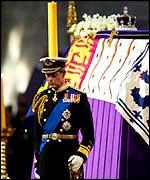 For the record, the honour of a state funeral is usually reserved for the Sovereign as "Head of State". Few statesmen and state heroes have risen to a level of public stature whereby such an honour would be granted, the only ones being:
For the record, the honour of a state funeral is usually reserved for the Sovereign as "Head of State". Few statesmen and state heroes have risen to a level of public stature whereby such an honour would be granted, the only ones being:1. Horatio Nelson, 1st Viscount Nelson (1806)
2. Arthur Wellesley, 1st Duke of Wellington (1852)
3. Henry Temple, 3rd Viscount Palmerston (1865)
4. The Rt Hon. William Gladstone (1898)
5. Frederick Roberts, 1st Earl Roberts of Kandahar (1914)
6. The Rt Hon. Sir Winston Churchill (1965)
(Benjamin Disraeli, 1st Earl of Beaconsfield was offered the honour, but refused it.)
Churchill was the only commoner in British history to receive a state funeral. It is debatable whether Lady Thatcher falls into such a grouping, but I can think of more reasons why she would than why she wouldn't.
We could learn a thing or two from this guy. Still not convinced? Lots more nuance compiled and translated here.
 Three British soldiers were killed in Afghanistan last Tuesday, four Canadians last Thursday. Lest we forget. Lest we forget.
Three British soldiers were killed in Afghanistan last Tuesday, four Canadians last Thursday. Lest we forget. Lest we forget.UPDATE: HEROES, NOT VICTIMS
Make that a fourth British soldier and a fifth Canadian to have died last week in the bloodiest week of fighting in Afghanistan yet. Go here for the list of heroes. But make no mistake about Afstan: Dozens upon dozens of Taliban met a fate far worse than that.
And let's not forget the 11 American soldiers who also lost their life last week in Iraq. Go here for a list of their heroes.
HONOURING OUR SONS, duly updated in the drop bar above.
Note how nobody is chastizing Prime Minister Harper over not lowering the National Flag on top of the Peace Tower on Parliament Hill. If we had done that in World War II for every soldier killed in battle, the flag would have been at a constant state of half mast, thereby lessening the significance of such a national gesture. Harper was right, they were wrong.
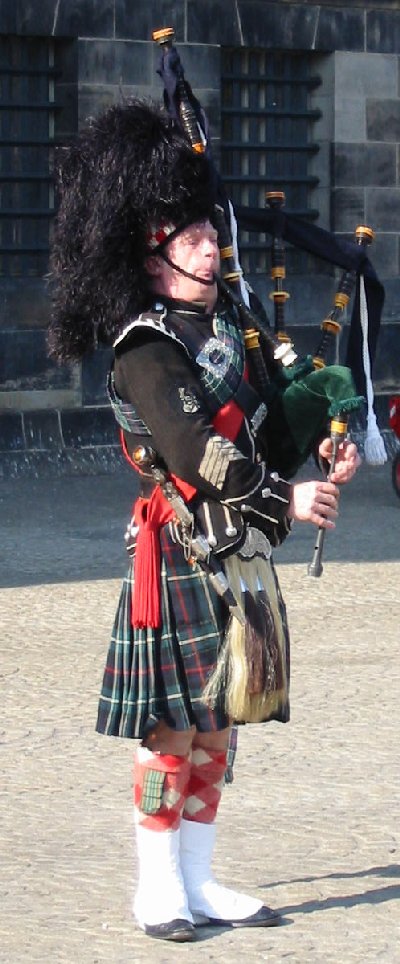 The Scots are not exactly conservative when it comes to their national politics. Nary a British Tory can win a seat in all the lowlands and highlands of that culturally rich Celtic country. Scotland is a Labour stronghold, continuously frustrating the chances of rightward British hopes.
The Scots are not exactly conservative when it comes to their national politics. Nary a British Tory can win a seat in all the lowlands and highlands of that culturally rich Celtic country. Scotland is a Labour stronghold, continuously frustrating the chances of rightward British hopes.In this they resemble Quebec. Canadian Tories relentlessly beat their heads into a wall, trying to penetrate a bridgehead onto that most anti-conservative of federal bastions. To wit: For all of Harper’s stance in the Middle East, his fragile base is now at risk of collapsing in nationalist Quebec. There’s something impossible about conservative politics – should I say loyalist politics – inside fortress areas where competing identities flourish and national loyalties are complex.
But we’re the richer for it, aren’t we. Up until the British manifesto of 1759 (read General Wolfe’s pointed manifesto to Canadians), Canadians were French only. I would never give up Quebec for the sake of federal politics, because to do so would destroy the original sense of what Canadian means. Ditto for the British and for those of us who still care about our British identity. To dispense with Scotland would be to dispense with Britain itself. It would kick the stuffing out of any sense of remaining British.
That would never do. Canadians love their French and Scottish heritage, and would never countenance their destruction. It’s too deeply ingrained into the national psyche. The Americans got their Irish, we got our Scotch. New Scotland sits just north of New England, the difference being that Nova Scotia is constitutionally recognized as a Province of Confederation, New England merely a collection of American states.
We have more Scottish regiments than the Scottish Division of the British Army. They have the Black Watch, so do we. They have their Royal Highland Fusiliers, their Argyll and Sutherland Highlanders, so do we. They’ve amalgamated their Seaforths, their Gordons and their Camerons; we’ve kept them separate. Canada has 15 Scottish regiments, Scotland, including their two Territorial, has nine (I have mostly populated all of these regiments under the right sidebar button, “Colonel-in-Chief”). Even these have now been re-organized under a single regiment, the Royal Regiment of Scotland, although each of their battalions will maintain their former regimental identity, as regiments within a regiment. Australia and New Zealand, by the way, have none. Only one company of one battalion of the Royal Australian Regiment is nominally Scottish.
So Canadians love their Scotch. Does it ever show.
The following is an exchange I had with a Guardian columnist (Larry Elliott), following my response to his contention that Canada and Italy have no business being in the G8. The debate about Canada's position in the G8 serves usefully as a proxy to a much larger issue, one that boils down to a clash of two competing visions, one Anglo, the other Euro.
Dear Monarchist:
Well, there are two responses really. The first is that a blog's a blog: you write things that are deliberately provocative hoping someone will take the bait. They're not fully formed arguments, but merely meant to start a debate.
At another level, though, I probably would still have come to the same conclusion had I devoted one of my longer columns to the same subject. The reality is that neither Italy nor Canada plays a major role at the G8 summit. You can tell how influential countries are by how many journalists from other nations turn up to the press conference given by their prime minister/president. And for Italy and Canada, it's not very many.
Personally, I think an optimal line-up for the summit would be the US, Japan, Brazil, India, Britain, France and Germany. Alternatively, the three European nations could amalgamate under an EU hat to form a gathering of the G5. I wouldn't have Russia or China because I don't consider them to be properly democratic; I would have India and Brazil as representatives of the developing world, and I wouldn't have Italy or Canada (despite its tar sands).
Best wishes
Larry
------
Larry, thanks for taking the bait.
Agreed on the fully formed argument part, but a certain provocation was in order to discover what you were basing your argument on, apart from the fact that Stephen Harper is not as entertaining to you as, say, Jacques Chirac. I have to admit that I'd never heard a country's influence was determined by a press conference or how many media are in the room, but I suppose every profession is guilty of believing in the absolute forefront of their own indispensability.
I would argue that a country's influence has more to do with the contribution it is making in world affairs. Brazil doesn't have thousands of troops deployed in Afghanistan, like Canada, Britain and the U.S., fighting for security in the region. It provides little in the way of direct aid and its economic output is small compared to its population. Nor is the world so dependent on its resources and trade, so I don't really see it for Brazil right now, other than it being the most populous country of South America. I'm not sure how many journalists attend their President's press conferences, but whatever it is, I'm certain it's not as many as Bono gets. By your measure, Bono would be more powerful than Britain.
Larry, I'm disappointed that you would contemplate the UK, Germany and France folding their cards under a single EU hat. Although they could combine their journalists under the roof of a single press conference, Great Britain would be held hostage by the pretensions of French glory and the Continental's dislike for the Anglo-Saxon economic model of flexible labour markets and minimally-regulated free enterprise.
So here's a better idea for the future. Given that countries no longer have to be geographically proximate to be usefully associated, why not have Canada, Australia, New Zealand and the United Kingdom, all of whom speak the same language and share the same history and values and economic success, combine their efforts at the G8 to increase their influence? Why not at the UN Security Council too? If as you believe, the future is for the big continental powers: China, India, U.S., Russia, Europe...then it seems to me, the rest of us, including the UK, should look to leverage their situation. Turning your country into a province of Europe does not do that, Larry. Surrendering your sovereignty does not leverage your relatively declining situation.
I hope you will give it some thought.
Fraternally,
The Monarchist
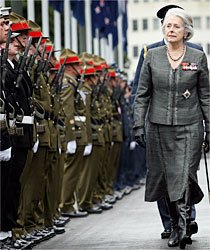 The Governor-General of New Zealand, Her Excellency The Honourable Dame Silvia Rose Cartwright got her royal farewell send-off today, ending only the second term that a female vice-regal has served the Queen as the Crown's representative in New Zealand.
The Governor-General of New Zealand, Her Excellency The Honourable Dame Silvia Rose Cartwright got her royal farewell send-off today, ending only the second term that a female vice-regal has served the Queen as the Crown's representative in New Zealand.What I particular like about New Zealand is that they don't seem to get overly hung up on titles, like we do in Canada and Australia. All the papers down there refer respectfully to her as a Dame, and recognize her knighthood as Dame Commander of the Order of the British Empire. None of our Governors General, never mind citizens, would ever use, or feel entitled to the prefix Dame or Sir, so much have we buggered our culture of honour. To the point where official Liberal policy instructs the Queen to refrain from offering certain types of honour to her own subjects.
Because the Liberals, didn't you know, do not believe in fostering a culture of entitlement. It's a principled thing. They do not want us to believe that we are entitled to our entitlements.
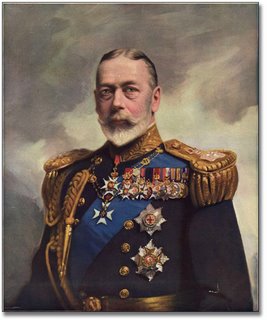 Government files just released in the UK revealed that a British police officer named Anthony Hall, during the 1920s and 1930s, claimed to be a direct descendant of King Henry VIII and his second wife, Anne Boleyn. The claim of rightful heir to the throne apparently rattled King George V, who wanted the man institutionalized for insanity.
Government files just released in the UK revealed that a British police officer named Anthony Hall, during the 1920s and 1930s, claimed to be a direct descendant of King Henry VIII and his second wife, Anne Boleyn. The claim of rightful heir to the throne apparently rattled King George V, who wanted the man institutionalized for insanity.The thing is, Anthony Hall wasn't insane, at least not according to government lawyers, who merely thought the man eccentric and wrongheaded. It is amazing that the King would have been bothered by this. Even if his claim were true, the whole idea of five centuries of illegitimate monarchs is, in actual fact, bunk of the highest order.
To quote Walsingham's fine piece, the right of kings, within the span and scope of British history and law, does not derive exclusively from birth, but from the fact of rule which may, under exceptional circumstances, be established by means other than rightful precedence or even of blood inheritance. Such circumstances obtained, for example, in the cases of Henry Bolingbroke, Henry Tudor, and William the Conqueror. In the latter case, the right to the throne was established and recognized by outright force of conquest, irrespective of any (in fact extant) blood ties to a prior king.
These arguments are irrefutably and completely vindicated and upheld by over five centuries of British history - those centuries establishing fact and precedent that by themselves are absolutely unassailable under British constitutional law.
So much for the King's worries. God save the Queen.
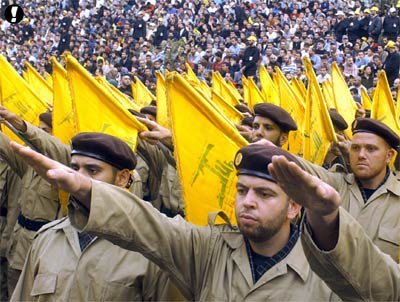 So Harper is standing up and being a leader. The Globe and Mail is reporting that only 32% support the Prime Minister on his pro-Israel, anti-Hezbollah, non-ceasefire stance on the Middle East crisis - yet the man is sticking to his guns. So is Britain's Blair. It's called leadership.
So Harper is standing up and being a leader. The Globe and Mail is reporting that only 32% support the Prime Minister on his pro-Israel, anti-Hezbollah, non-ceasefire stance on the Middle East crisis - yet the man is sticking to his guns. So is Britain's Blair. It's called leadership. For the 68% of you who think that we should be pro-neutral and pro-"honest broker" in the region, let me echo the words of wisdom of the great G.K. Chesterton, who Harper recently used in a speech a couple of weeks ago (New York's Andrew Cusack professed to be shocked, shocked that a politician would actually mention Chesterton in a speech). Chesterton had this to say about impartiality:
"IMPARTIALITY IS A POMPOUS NAME FOR INDIFFERENCE, WHICH IS AN ELEGANT NAME FOR IGNORANCE"
So if you folks want to be indifferent and ignorant to the fact that a terrorist organization is deliberately pummeling civilian areas in northern Israel with artillery rockets, it's your conscience. You don't think they have a right to defend themselves? You think we should negotiate a ceasefire with Hezbollah, an armed nazi militia operating with impunity within the state of Lebanon? Why? To give them even more time to get even more powerful, to allow them to once again hijack the future of Lebanese society and deliberately put at risk innocent Lebanese civilians in a calculated way to inflame world opinion against Israel, who just wants to live in peace? You don't think we should take sides? You want to be neutral when Hezbollah's stated militant goal is to wipe Israel off the map?
But maybe some of you people are taking a position of principle, and declaring yourselves to be pacifists. Guess what? You're in league with the militarists. Hate to break it to you that way, but as Chesterton argued, both militarism and pacifism are really a single idea -- that the strong must not be resisted. So much for your neutrality, folks. So much for your dishonest brokerage.
Readers will notice that the 25th anniversary of the wedding of Prince Charles and Lady Diana Spencer went by on the weekend without The Monarchist saying boo. That's right, I'm not that kind of monarchist. I'm much more comfortable leaving the fairy tale reporting to more qualified, more sensitive and caring people than me. I will say this, however: Fairy tales do not work in the media age. Once you get a peek into the real person, once you leave nothing for the imagination, the whole gig is up.
In another era, we would have never learned the truth about Charles and Diana. The people would have been left to their fairy tale story. Never again. The media, for better or worse, has killed off Cinderella for good.


